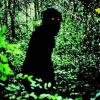Vakcinacija
Vakcinacija 328 members have voted
-
1. Da li ćete se vakcinisati?
-
Da, prvom prilikom220
-
Da, ali ne odmah, sačekao bih prvi talas reakcija58
-
Ne zasad, ali sam spreman da promenim mišljenje16
-
Ne, nikako20
-
Ne znam14
-
-
2. Koju vakcinu biste napre uzeli?
-
Pfizer and BioNTech144
-
Moderna14
-
Sputnik V25
-
AstraZeneca21
-
Sinopharm China10
-
Svejedno mi je114
-
Please sign in or register to vote in this poll.
Featured Replies
- Prev
- 871
- 872
- 873
- 874
- 875
- 876
- 877
- 878
- 879
- 880
- 881
- Next
- Page 876 of 1104
- Prev
- 871
- 872
- 873
- 874
- 875
- 876
- 877
- 878
- 879
- 880
- 881
- Next
- Page 876 of 1104
Followers




